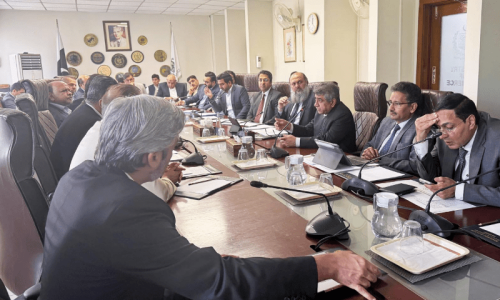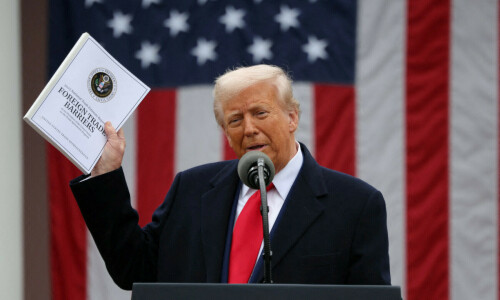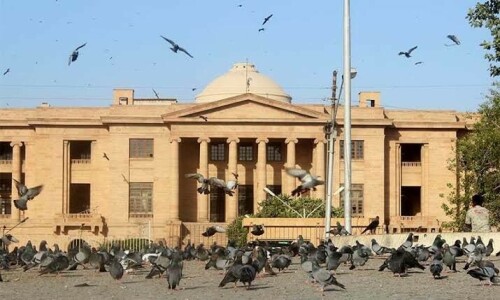KARACHI: From November 25 to December 10 every year, the world marks 16 days of activism against gender-based violence; on Friday the Pakistan Institute of International Affairs (PIIA) in collaboration with the Aurat Foundation organised an interactive session that delved into the current state of women’s rights in Pakistan against the backdrop of this year’s theme: ‘Orange the World: #HearMeToo’.
PIIA chairperson Dr Masuma Hasan spoke about the importance of the campaign, which is a global movement, and said that in Pakistan over the past 10 years there had been many pro-women laws passed. Some of the laws passed were possible due to the civil society, in particular the Aurat Foundation, who worked very hard to make citizens, parliamentarians and the government aware of women’s rights, she said.
Mehnaz Rehman, resident director of the Aurat Foundation, spoke about how there had been a change in the reporting of harassment the world over; first women were afraid to report it because of several reasons which included being blamed for being raped or harassed. Now however, they are more willing to fight back, she added.
“There is a need for attitudinal changes in society that both men and women are equal and deserve equal treatment. For this we need men to be part of the conversation and without political education in the country we cannot achieve women’s rights. The infrastructure that governments posses civil society activists do not have access to; institutions need to be set up in Pakistan that are not corrupt and function purely for human rights and this is the responsibility of the federal and provincial governments.”
Legal punishment, she said, was not sufficient to eliminate violence against women. “Punishments don’t always have a long term effect; there is a need to empower citizens on a social and economic front.”
Nuzhat Shirin, chairperson of the Sindh Commission on the Status of Women, shared her journey which started off as a journalist reporting on women’s rights. She credited the Aurat Foundation for sensitising her, along with many others, to the way in which women’s issues should be reported. “I started my career in Urdu newspapers by reporting on Sindh Assembly proceedings. It was during that time that I was introduced to the Aurat Foundation and was sensitised to women’s rights.
Nowadays, she said, activism is much more informed. It was however, not so much a few years ago and Ms Shirin credited the Aurat Foundation for training her and teaching her as to how to raise the issue of women’s rights. “I was taught that there even needs to be a separate diction to write about such issues. I was taught how to raise the issue within the agendas of political parties and function within legislative bodies.”
However, women’s rights in Pakistan greatly suffer due to lack of political commitment, she added. “Budgetary allocations, human resource allocations are just some of the hurdles, including lack of political commitment and implementation of laws. For instance, we have seen that safe homes and shelters in Sindh have been established on paper for many years now and budgets allocated for them. However, when we visit them we realise that the funds are being misused and abused on many different levels.”
Other speakers included MPA Rana Ansar who shared her 18 year old struggle of being from a humble family with no political aspirations to becoming an integral part of the struggle for women’s rights in Pakistan.
Jamil Junejo, a writer with a master’s degree in human rights and democratisation from the University of Sydney, explained that in the fight for women’s rights, laws were an essential requirement and the state could galvanise change in great ways if it took this responsibility seriously.
Published in Dawn, December 8th, 2018














































